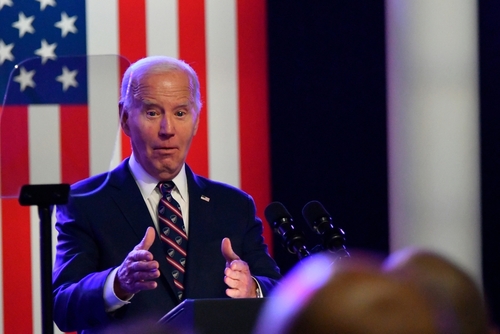
The American landscape is grappling with a surge in Chinese migrants at the border, coinciding unnervingly with escalating tensions over Taiwan. This has prompted urgent questions about national security and the integrity of our borders, stirring a heated debate from coast to coast.
The recent increase in Chinese nationals attempting to enter the United States has rung alarm bells among security analysts and conservative commentators alike. They argue that this trend could be symptomatic of a larger, more sinister strategy by Beijing to gain a foothold on American soil under the guise of migration, particularly as whispers of conflict with Taiwan grow louder.
❗️ President Trump just posted this video of Biden & Pelosi on Instagram
He needs to bring some of these based posts over here to 𝕏 🤣 pic.twitter.com/jiLlYWTHai
— Nick Sortor (@nicksortor) February 23, 2024
Conservative voices are raising concerns that among the influx of migrants, there could be individuals with military backgrounds or those coerced into espionage. The potential for these migrants to act as sleeper agents for the Chinese government can’t be dismissed, given the historical precedent of nations using the cloak of immigration to infiltrate other countries.
Compounding the anxiety is the consideration that the Chinese Communist Party (CCP) has long viewed Taiwanese sovereignty as a threat to its ideology and territorial claims. With the CCP never renouncing the use of force to bring Taiwan under its control, the U.S. finds itself in a precarious situation where any misstep could further inflame international relations.
Nancy Pelosi goes completely unhinged as she and Jen Psaki float a delusional conspiracy theory that Putin is blackmailing President Trump with "something financial" pic.twitter.com/E51UNERu82
— RNC Research (@RNCResearch) February 20, 2024
The presence of Chinese migrants with possible military ties is not only a security risk but also speaks to the broader issue of border integrity. Conservatives have long championed the necessity of rigorous vetting processes to ensure only those with legitimate reasons and clear backgrounds are allowed entry, thereby safeguarding national interests.
This circumstance demands a robust response from the U.S. government. It underscores the need for a comprehensive reevaluation of immigration policies and border control measures, ensuring they are equipped to filter out elements that could pose a risk to national security while upholding America’s reputation as a beacon of hope for genuine seekers of liberty.
As tensions with Taiwan reach a potential tipping point and the likelihood of espionage via immigration looms, conservatives insist that this is not a time for complacency. The U.S. must remain vigilant, with intelligence and border agencies working in tandem to preempt any threat to domestic stability and the values that define the nation.
The challenge the United States faces is to uphold the delicate balance between being an open, welcoming society and protecting its citizens from covert foreign threats. This demands a nuanced approach that privileges national security without compromising the fundamental American ethos of freedom and opportunity for all who come with pure intentions.
In conclusion, the uptick in Chinese migrants at the border amidst the rumblings of a conflict over Taiwan is a matter of grave concern that requires immediate and decisive action. It’s a test of resolve for policymakers and citizens alike to strengthen the safeguards that protect the homeland while staying true to the values that have long made America a destination of choice for the oppressed and ambitious worldwide.












